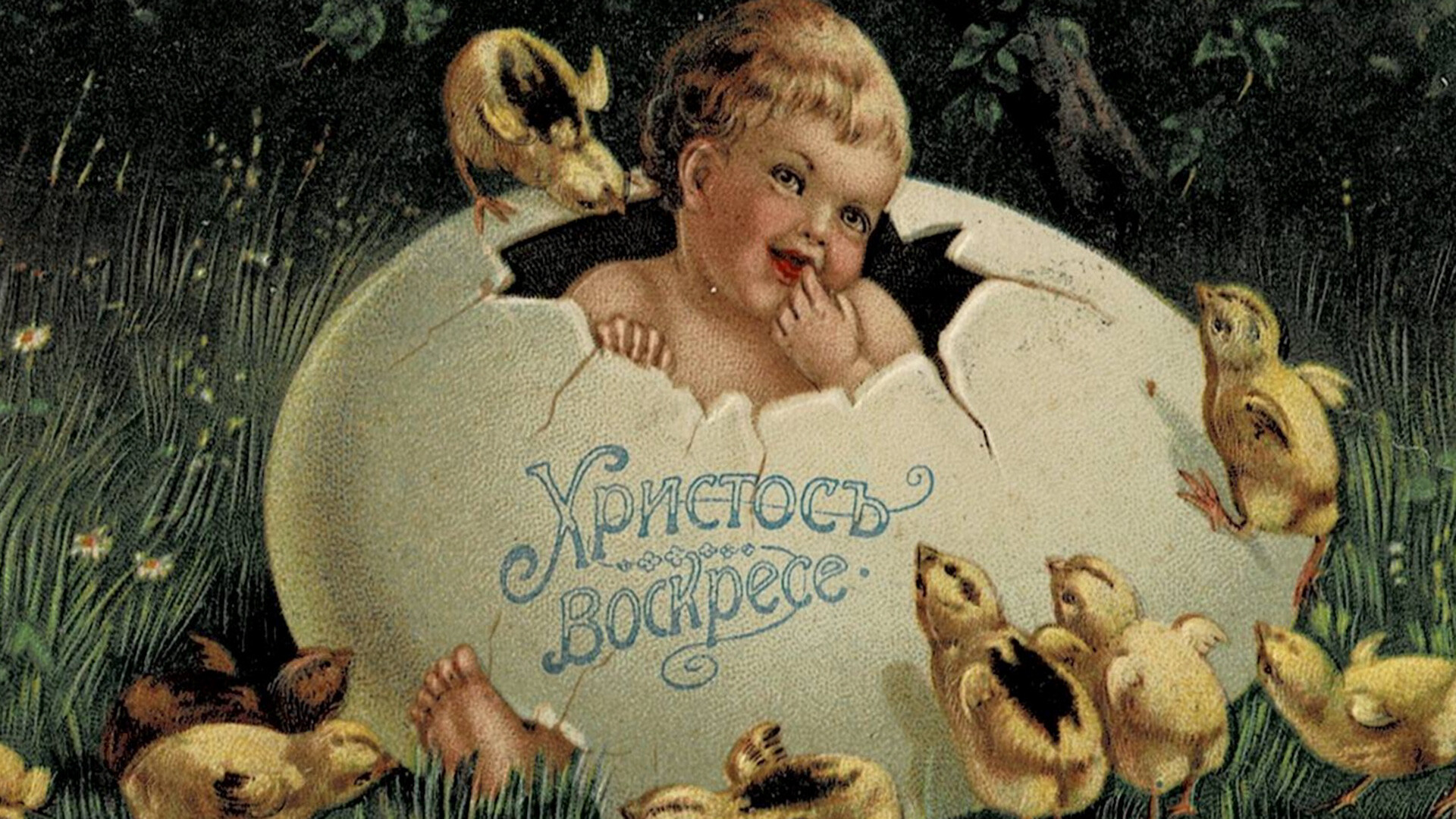

A classic holiday scene - a girl with sprigs of willow and Easter eggs. The sender of the greeting writes on the back of the card: “...wish to spend these days in cheerfulness and joy!”

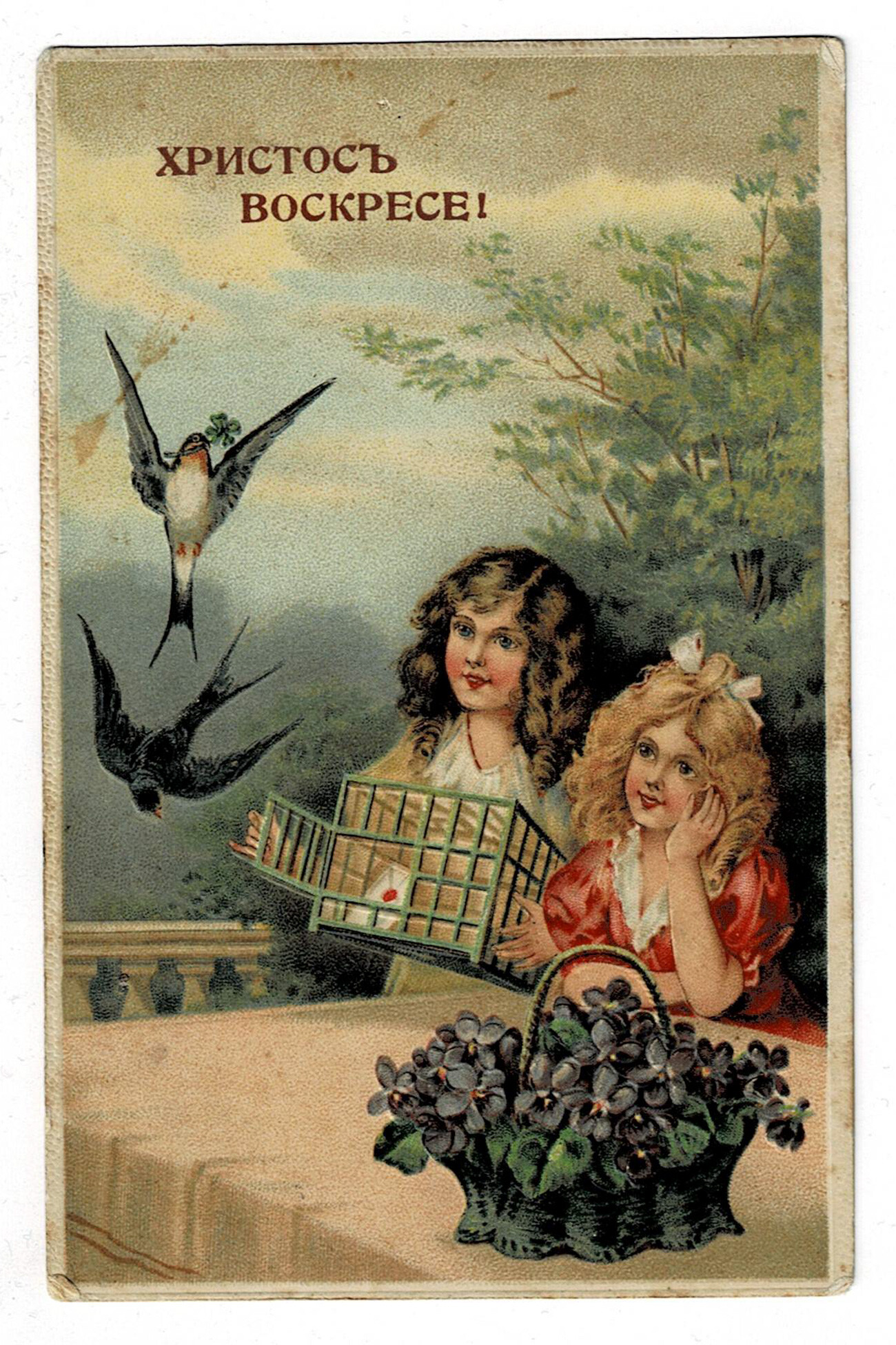
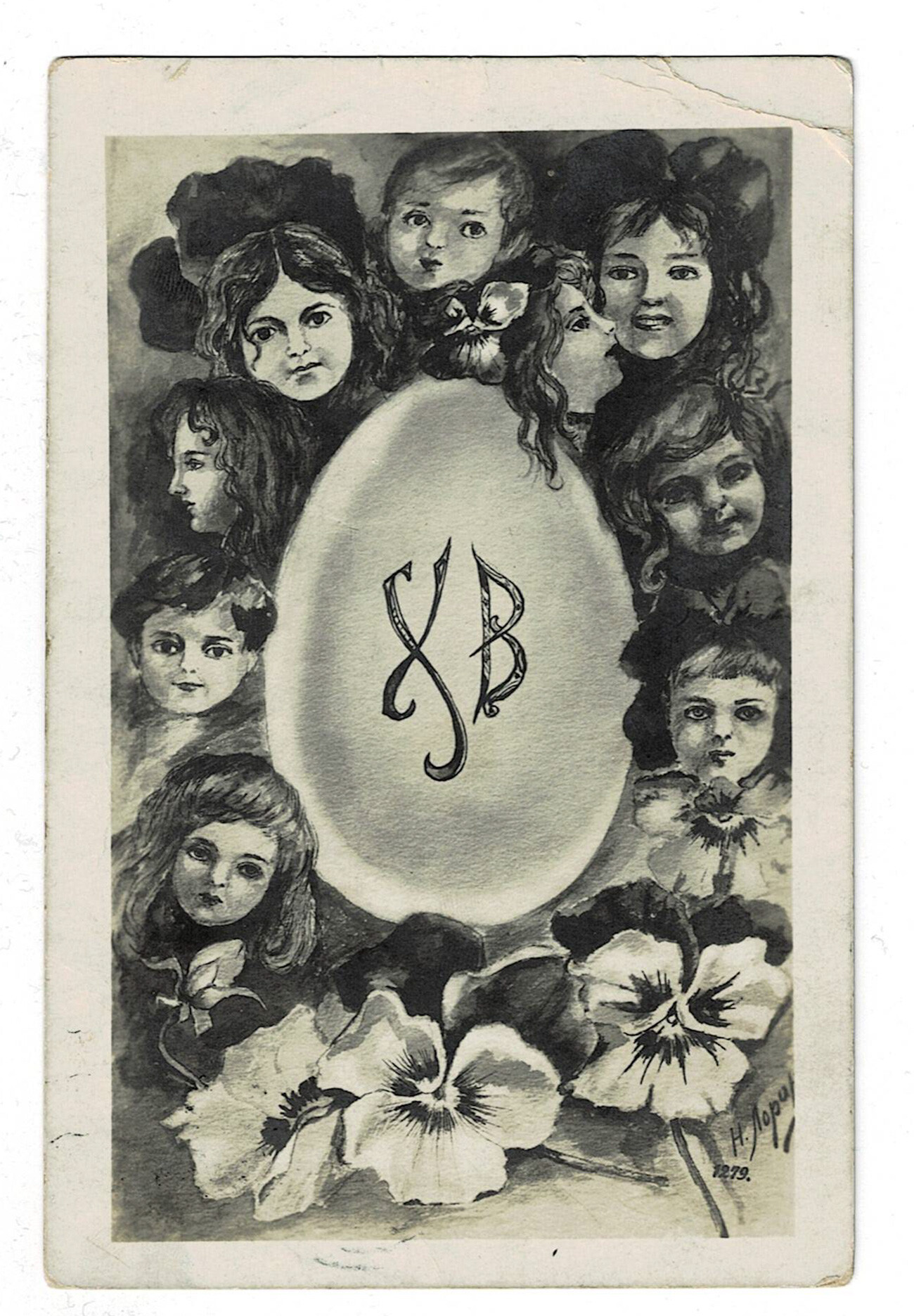
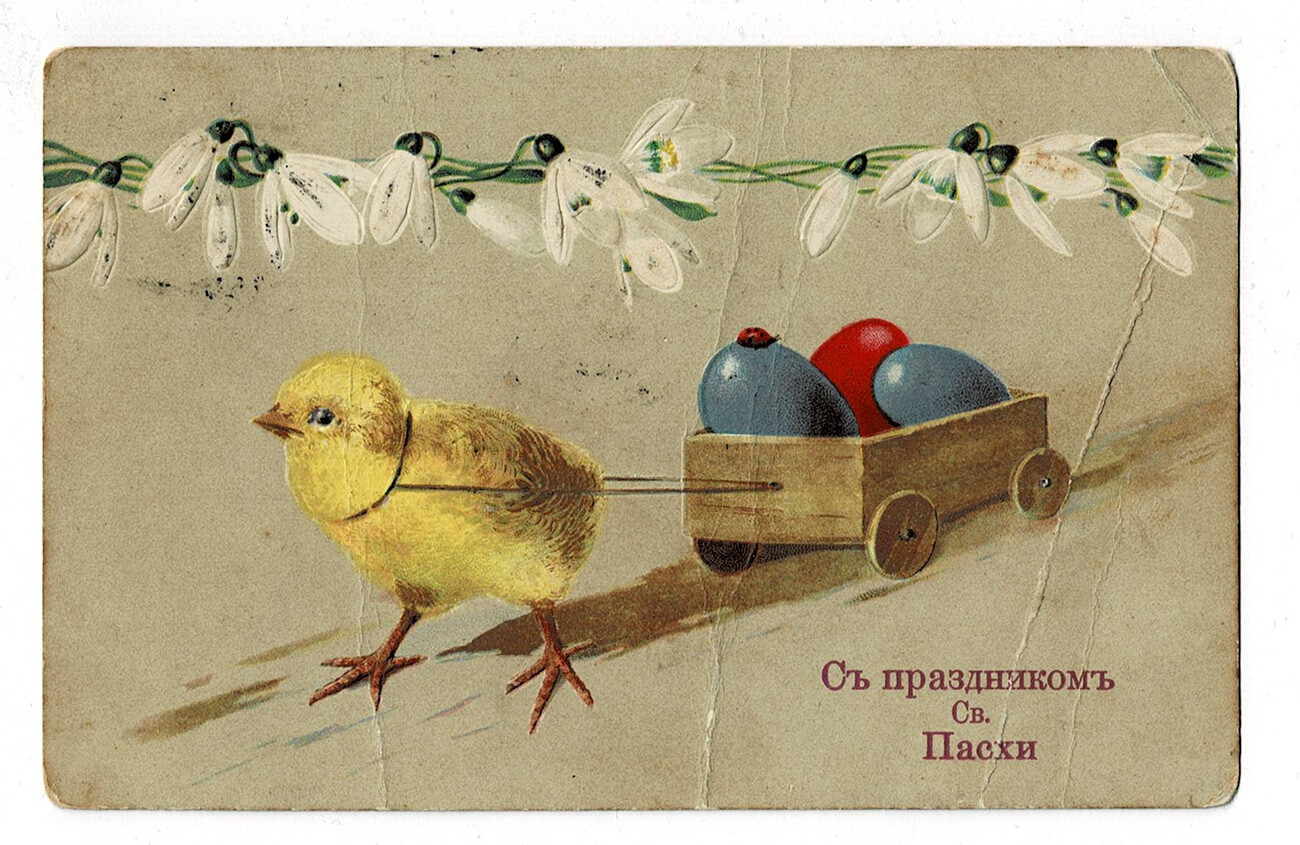
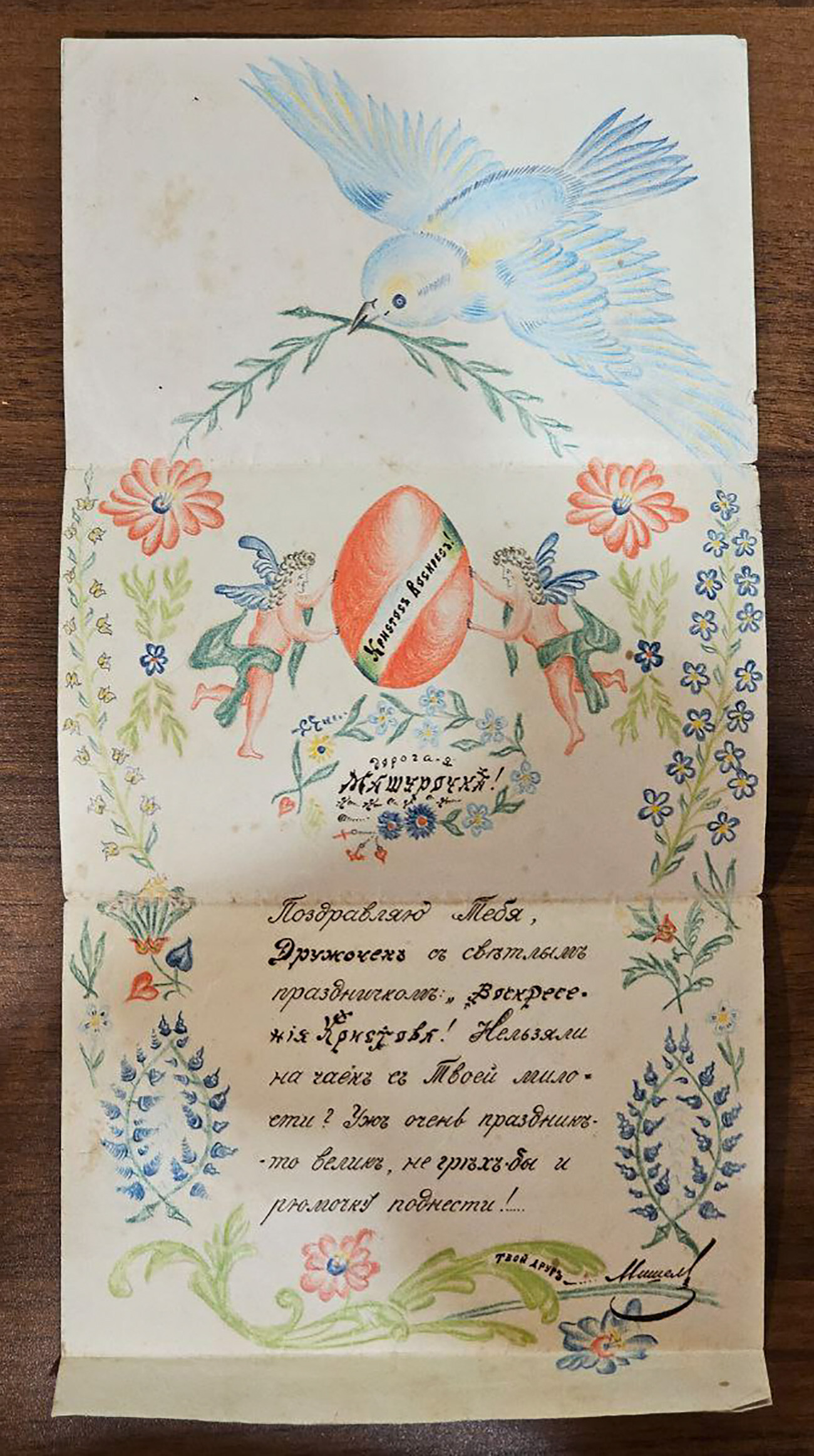
Some Easter cards are more like small paintings. For example, on this one, a bird carries olive sprigs in its beak, angels hold a painted egg in their hands and the text itself is placed in a floral frame. “Would it be possible to have a cup of tea with your grace?” asks the author to the addressee. “It's a great holiday and it would be a sin not to raise a glass!”

Congratulations were sent not only on themed cards, but also on any other cards. And, in addition to congratulations, on a small piece of cardboard, they still found space and had time to share their pains: “I have already broken my gun, I took it to the repair shop. They fixed it, but not reliably. Today, I'll go again.”
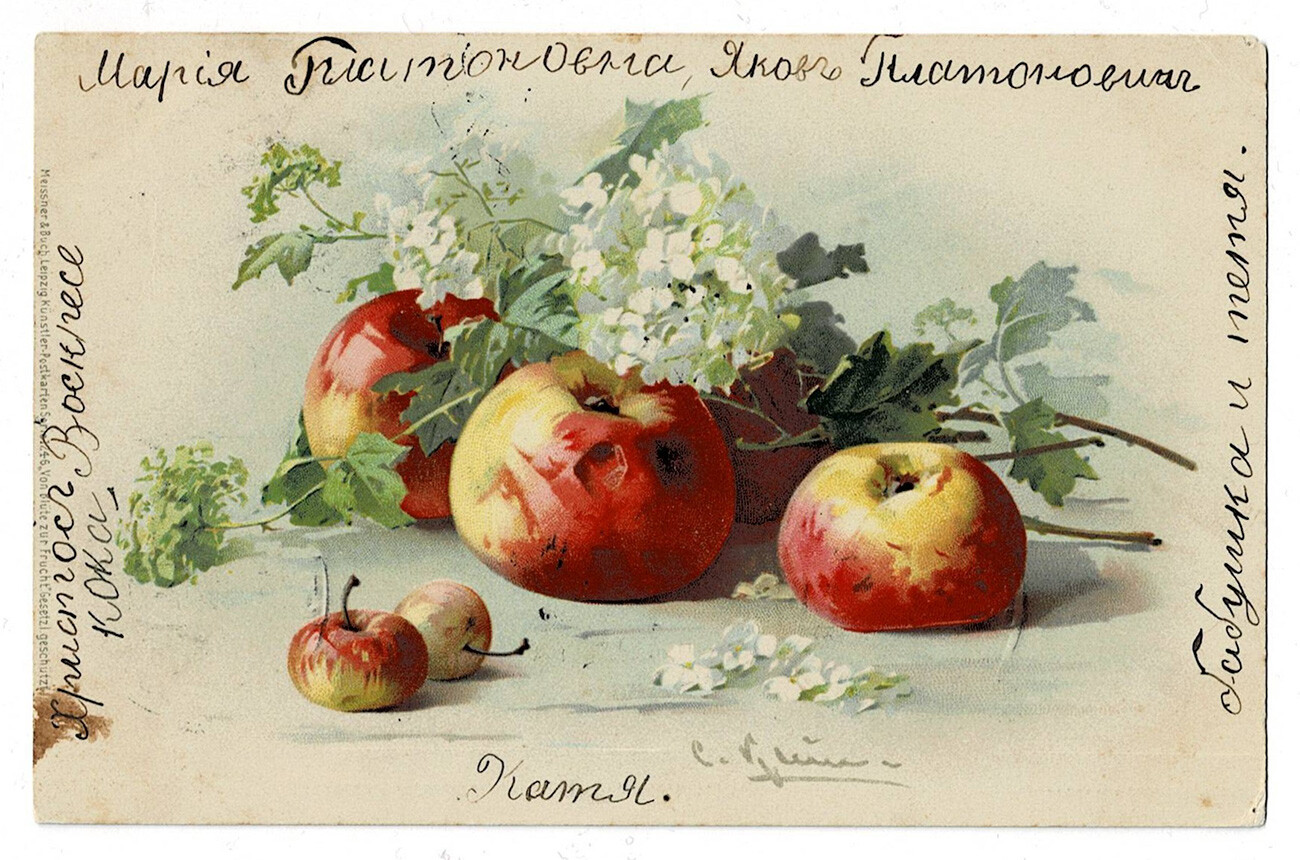
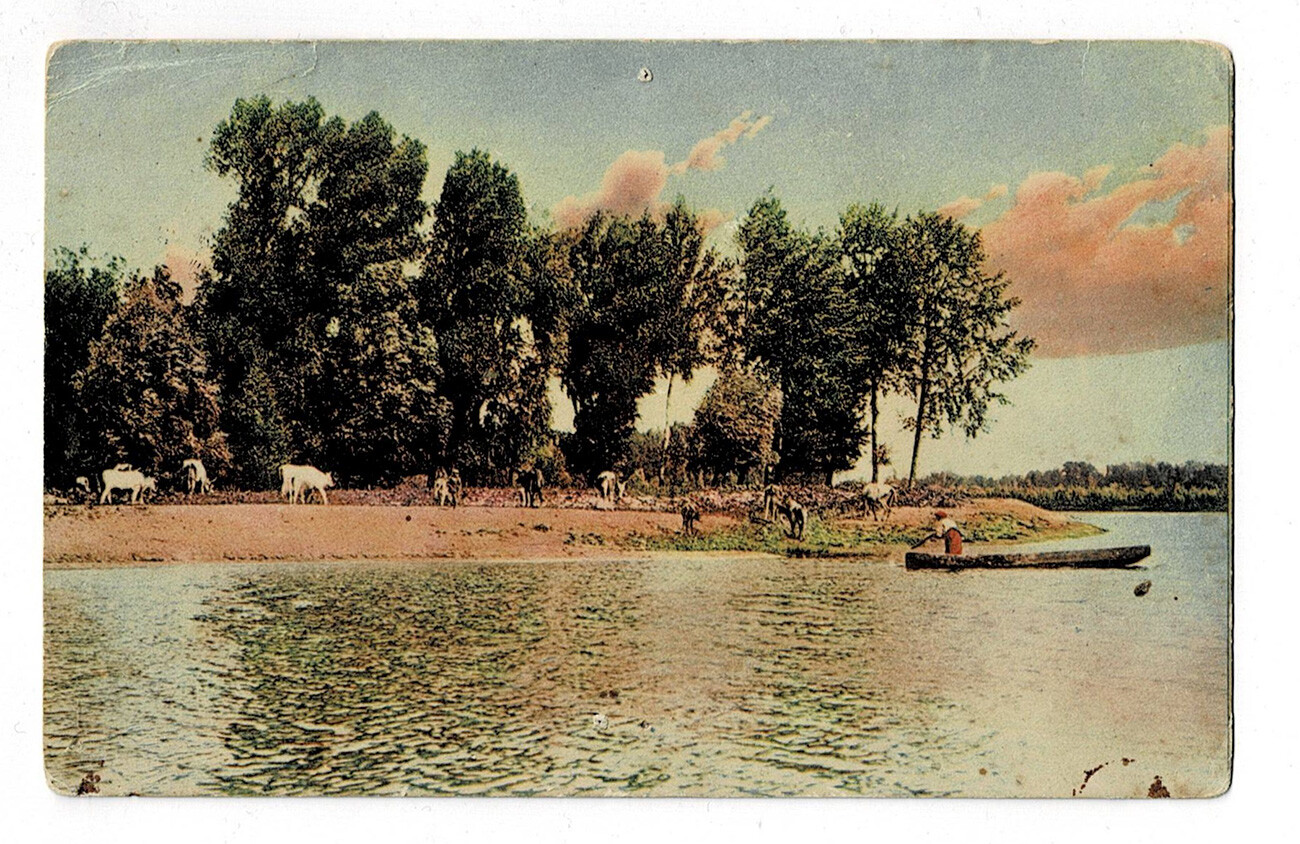
“Christ is Risen, Shura, I wish you all the blessings of the Earth for the holiday!”


Even during the war years, the bright holiday was not entirely forgotten. In 1916, a postcard was sent from the 272nd Gdov Infantry Regiment to Petrovsky Park in Moscow. In it, a father wrote to his daughter Natasha: “I'm sending you a postcard with bright colors. Mom wrote that you were on the willow tree and bought toys. How are you spending Easter now? Kiss you many, many more times. And you kiss Mommy for me.”
Postcards from the collection of deltiologist Evgeny Novikov can be seen until June 2 at the ‘Why a Postcard?’exhibition at the Museum of A.P. Chekhov's Letters.
Dear readers,
Our website and social media accounts are under threat of being restricted or banned, due to the current circumstances. So, to keep up with our latest content, simply do the following:
If using any of Russia Beyond's content, partly or in full, always provide an active hyperlink to the original material.
Subscribe
to our newsletter!
Get the week's best stories straight to your inbox